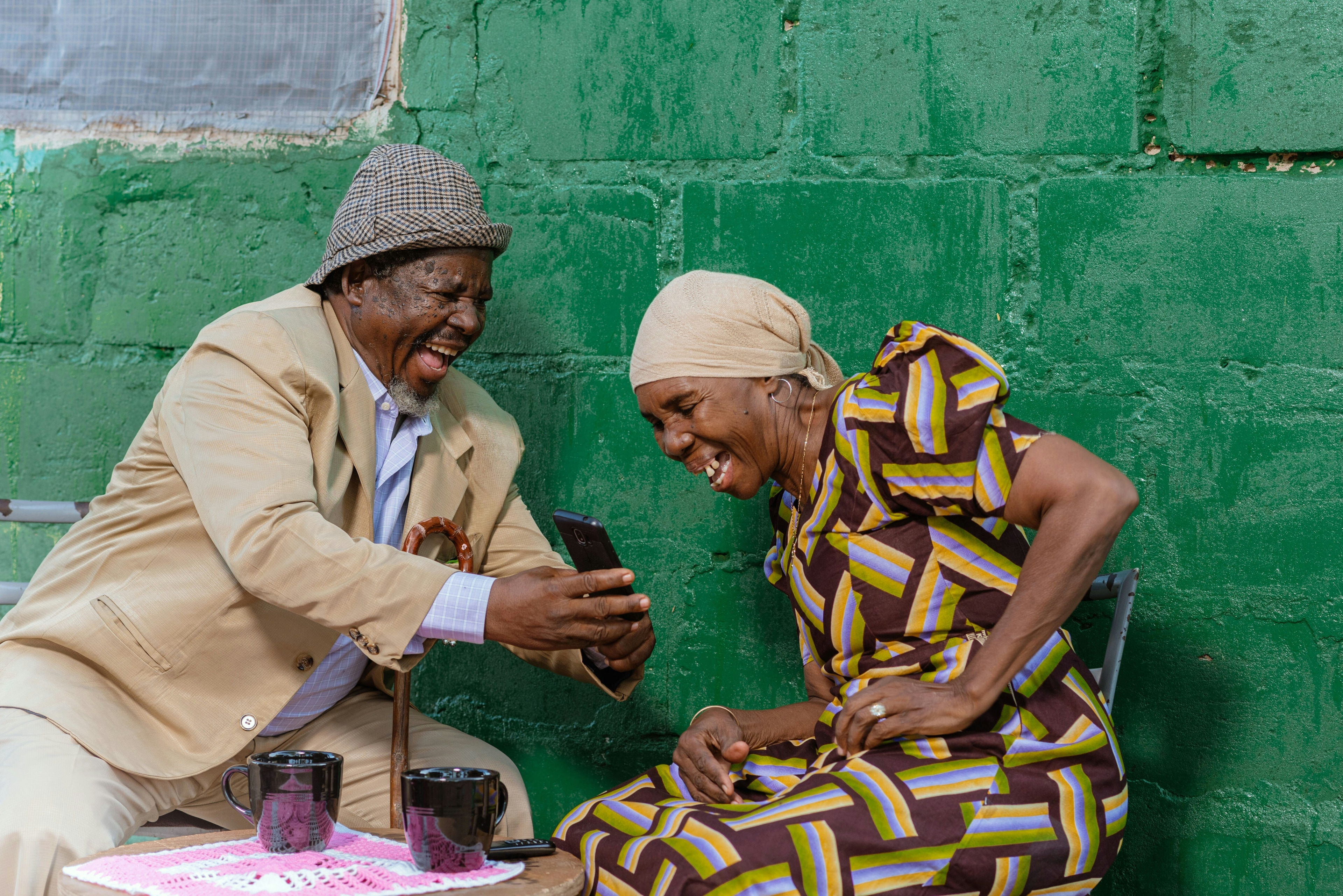Malaysia can show the way towards a holistic model for human rights

The general election in May last year ended decades of authoritarian rule in Malaysia.
Image: REUTERS/Athit Perawongmetha
Stay up to date:
Human Rights
On the 9th of May 2018, my smartphone recorded a 40% increase in social media activity. As a psychologist who speaks about the causes of insomnia with clients at least once a day, I was aware that gluing my eyes to my phone’s screen meant I was not going to sleep well that night.
Sleep was the last thing on my mind, however. That was the day Malaysia made history in its 14th general election. I refreshed Twitter constantly as real-time videos surfaced of Malaysians taking things into their own hands. I watched citizens stopping people with innocuous boxes at polling stations, opening them, and the revelation of allegedly fake ballots. That evening I sat on the edge of my sofa, after a day of handing out water bottles to unprecedented queues of Malaysian citizens determined to vote, waiting with trepidation for the severely delayed election results to be called.
At 93 years of age, Malaysia’s head of state - the oldest such office-holder in the world - Tun Dr. Mahathir defeated Barisan National, a party which had held power for more than 60 years. He had come out of retirement to face off against his former protégé, the former prime minister Najib Razak, who faced formidable opposition in both Mahathir and the people's resentment over allegations of what was termed ‘C-squared’: corruption and cronyism. Such was the atmosphere created by C-squared, in fact, that in a sad display of foresight my husband had bail money set aside in case I tweeted something that was viewed as seditious and wound up in solitary confinement.
Accept our marketing cookies to access this content.
These cookies are currently disabled in your browser.
But the people have spoken. What next? Through my experiences as a therapist, I have observed the following two things to be true of Malaysia’s multiculturalism; firstly that people are kind, and by nature or instinct they want to do good.
Secondly, that despite that instinct to do good, the state of the world can feel so overwhelming and traumatising at times with real effects on mental health that people hide behind dismissive cynicism or defeatist ideas. It can be more palatable to admit defeat before starting than to give it everything and fail. People literally become immobilised through the sheer scope of what is facing the world, in what psychologists characterise as the flight, freeze, or fight response.
Building on these observations, every moment is a teachable one which starts with influencing the person in front of you. With the understanding that mass change requires seeding a different thought process, I speak to one million people weekly on a radio show called Mind Matters on which we discuss psychology, leadership, and human rights through the lens of the latest research, while refuting propaganda or conjectures that fly in the face of human rights. People often cite the plurality of religions and cultures in Malaysia as being problematic for the application of human rights, and I am often asked tough questions about how the implementation of one right might hurt the sentiments of another group. Human rights, however, are universal, indivisible, and - in a Buddhist-like way - interdependent. Both individuals and groups are equally entitled to these immoveable rights.
As debate raged about whether Malaysia will or should ratify the International Convention on the Elimination of All Forms of Racial Discrimination (ICERD), I debated the question solely from the position that the power of thought encompasses all. Meanwhile, political leaders were on their soapboxes instigating and misrepresenting constitutional clauses and what the convention actually represents. This was poignantly demonstrated by the independent Malaysian radio channel BFM, which highlighted some of the conspiracy theories surrounding ICERD - such as the one claiming it is part of a Jewish takeover plot.
I am in the practice of sowing seeds, comfortable in the uncertainty of timelines and in the knowledge that when the environment is right, the seeds will flourish. Through back-door and closed-door diplomacy, I have had moving discussions on the need to abolish the death penalty with both sultans and ministers, bearing in mind cross-cultural differences in conceptualising human rights and the use of human rights for political agendas.
Amnesty has long been working on abolishing the death penalty. This retributive strategy has no place in civilised society, because - as research shows - it does not deter crime. And there is not enough discussion about the indescribable pain that comes from knowing that a case you were monitoring and rooting for ended up on the gallows. In a marked departure from previous practices, the Malaysian government worked around the clock to halt the execution of one of its citizens in October 2018, reflecting the current moratorium on the death penalty. But it was during a photoshoot for the cover of a magazine that I found out Prabu Pathmanathan had been hanged. The photographer captured that moment and expression on my face, and it now hangs in my study as a haunting daily reminder of how a death sentence and execution has far reaching impacts beyond the person condemned.
Merely favouring human rights is not nearly enough, as demonstrated by clicktivism. Through behavioural changes focused on respect, time management and dialogue, I am working towards a collective change and inclusivity in the composition, modernisation and actions of what it means to uphold human rights and being called a human rights defender. Recent research has found that individuals who possess certain values, such as social justice, loyalty and helpfulness, are more likely to uphold human rights. These values coalesce with the Young Global Leaders’ (YGL) focus on social good, authenticity, generosity, respect and impact. When people have a “psychological sense of global community”, they are in better position to advocate and push all industries and governments to protect human rights.
Every YGL has their mission; mine is to heal. I became a YGL because it is here that every contrarian position, every attempt to be silenced, and every issue for which I have fought in the first 30 years of my life was not only lauded, but touted by the World Economic Forum as only the beginning. And that is right: this is only the beginning of the end the oft-repeated idea that human rights activists are hardliners belonging to a certain class and mindset; that we are aggressive people trying loudly and foolishly to ‘save the world’.
From royals at fashion week to migrant workers on the construction site next door, human rights is every single person’s issue. At the end of 2019, my mandate of holistic healing models via an integration of psychology, human rights and spirituality will be published as Resistance, Resilience, and Recovery From Disaster: Perspectives from Southeast Asia. In it, I argue that spiritualism is not antithetical to Western empirical science - and that in fact, in a globalized world in which mental health, sexuality, and gender are conceptualised unequally, spirituality provides an equilibrium that is rooted deeply in our indigenous and cultural psychology, because inherent within the majority of spiritual world views is a commitment to humanity and humanitarian efforts.
The views and opinions expressed in this blog are those of the author and do not necessarily reflect the official policy or position of any other agency, organization, employer or company.
The author of this blog is a member of the World Economic Forum YGL 2019 cohort.
Don't miss any update on this topic
Create a free account and access your personalized content collection with our latest publications and analyses.
License and Republishing
World Economic Forum articles may be republished in accordance with the Creative Commons Attribution-NonCommercial-NoDerivatives 4.0 International Public License, and in accordance with our Terms of Use.
The views expressed in this article are those of the author alone and not the World Economic Forum.
Forum Stories newsletter
Bringing you weekly curated insights and analysis on the global issues that matter.
More on Civil SocietySee all
David Ebube Nwachukwu and Adam Skali
August 25, 2025
Thom Townsend
August 20, 2025
Valeriya Ionan
July 28, 2025
Annette Mosman
June 19, 2025
Laura Henderson
June 4, 2025






